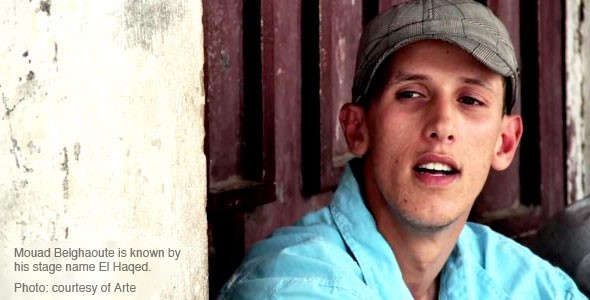China arrests an inconvenient artist, Pakistan blocks YouTube, Morocco puts a rapper in jail… but Americans are OK as long as we can make public officials recognize the demands of the First Amendment. But is this enough? In the 21st century, with instant communications, with an art world that is defined by events spread all over the globe, and with educational programs and college campuses eager to gain multinational students, the effects of censorship transcend national borders more than ever. A rapper in Morocco can be key to making young Americans care about political corruption and police brutality in that country – and at home. The pulping of US authors’ books in Singapore is an act of symbolic violence not only directed at local readers, but also at those authors.
NCAC is increasingly sought after to share our experience and knowledge about censorship, and to help free expression allies around the world demonstrate its effects, both local and global. In July, we joined 11 other international organizations in an Open Letter to the Moroccan Minister of Justice and Liberties, condemning the four-month sentence for rapper Mouad Belghouate, an outspoken critic of corruption and police brutality. Later that month we urged the Singapore government to reverse the decision to pulp the books – several of which were written by NCAC board member and 2014 NCAC Free Speech Defender Robie Harris.
Our domestic work also has international repercussions: when we oppose the banning of books in US schools we make sure that Singaporean authorities cannot point a finger at the US and say: “they banned those books in school libraries there as well.” When we work with an Internet platform like YouTube to make sure their terms of service do not needlessly restrict artistic content, the changes affect users at every latitude. When the Metropolitan Opera cancels the HD simulcast of John Adams’ The Death of Klinghoffer under pressure from local donors, opera lovers from across the world, most of whom cannot afford to come to New York and see it live, will be deprived of seeing the work.
The worst enemy of the censor is sunlight: when, this August, the Korean government put pressure on the Gwangju Biennale, Asia’s first and most prestigious contemporary art biennale, to remove a work which satirized the Korean President, the official reason was “lack of space.” But the scrutiny resulting from international protests revealed that the removal was politically motivated. Artists withdrew from the show and its founding President resigned. News media on all continents covered the incident and reproduced the image: millions saw the satire and witnessed this heavy-handed attempt to stifle political criticism. In effect, the critical goal of the piece, shown below, was accomplished much more successfully with the help of the censors – and the sunlight of exposure.
It’s all documented on NCAC’s wiki of censorship incidents, Censorpedia, which serves as both a repository of past censorship incidents and a reference guide to current controversies. There are the ones you’d expect to see, like the controversy over the Danish cartoons of Mohammad, including Yale University Press’ refusal to reproduce the cartoons in a book about the controversy, but also some that you have probably never heard of: Check out this recent one from France involving a mural with “grotesque and burlesque” figures installed at the ceramics museum in the small town of Moustiers Sainte-Marie. The mayor called the images “insanities, vices, and pornography.” Even though the artist agreed to put fig leaves on six of the contested images, the mural was covered. And we thought only Americans were prudish…
It is hard for any individual organization to address the avalanche of free speech violations around the world – but collaboration goes a long way. In 2012 NCAC was one of the 21 organizations to launch ARTSFEX, the first international civil society network actively concerned with the right of artists to freedom of expression. Artsfex is a hub for international information exchange, joint action in support of artistic freedom and trans-border collaboration. Through Artsfex, NCAC can inform the global community of free speech problems in the US, as well as help expand support for free speech around the world.



